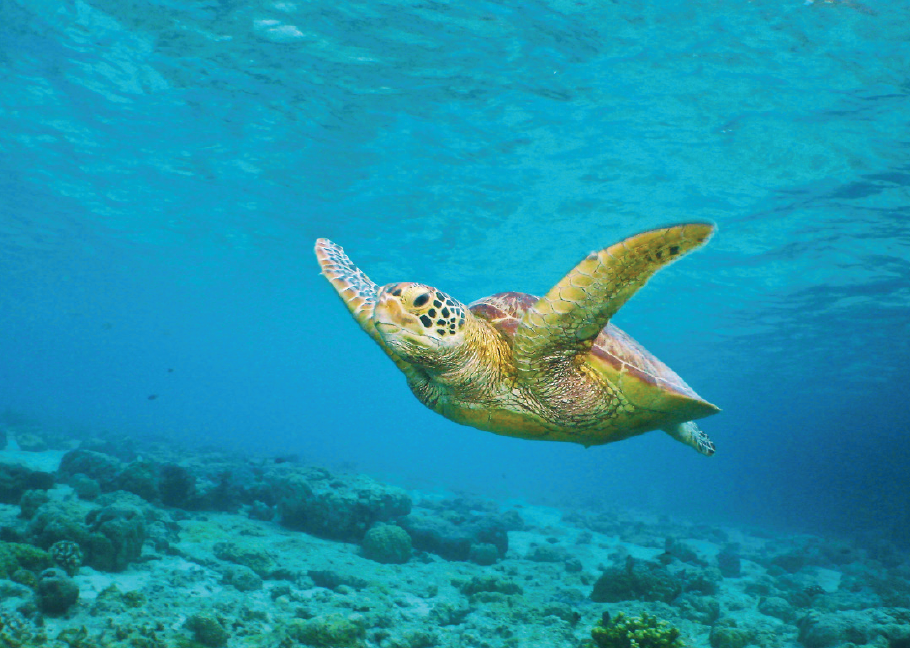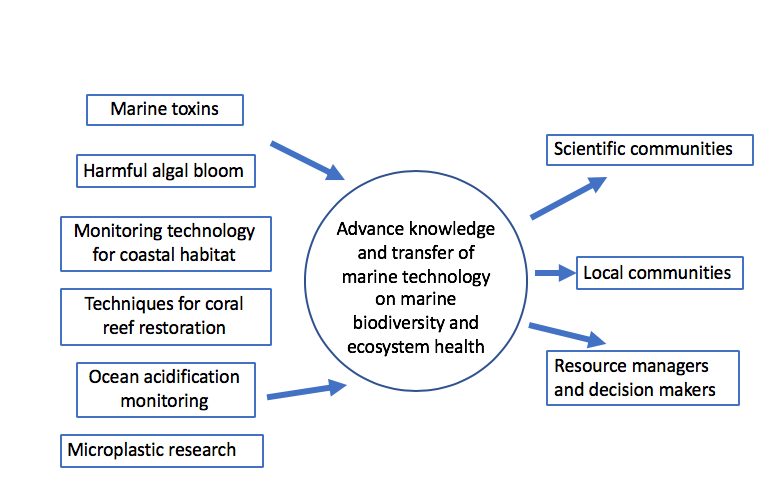
| This proposed project aims to accelerate the transfer of marine technology for marine biodiversity conservation and seafood safety, particularly on harmful algal blooms, coastal habitat conservation, marine toxins and seafood safety, and other hotspot biodiversity related issues, such as the impact of ocean acidification and climate change, and microplastics etc. To address both deep disciplinary understanding of marine biodiversity and resources, and solution-oriented research to generate knowledge, the project will be prepared and implemented through a series of national and/or international workshops, stakeholders consultations, methodology and outreach materials development, training courses. These project workshops will further structure a collaborative framework to boost scientific efforts and conducting collaborative research nationally and regionally, to address sustainable development challenges. Other financial support, either in cash or in kind, will be leveraged through partnerships. Through the above specified activities, cutting-edge knowledge about the causative HAB species, its identification and distribution, relevant mitigation measures could be generated and/or shared, research protocols, methodologies and techniques for habitat mapping and conservation, ocean acidification monitoring and microplastic research, will be developed and put into application, along with local stakeholder engagement campaigns. Capacity for marine toxin analysis will be further substantialized mainly through the regional training and research center that was established in the Institute of Oceanography, Vietnam Academy of Science and Technology as one output generated from the previously JFIT supported programmes. The project will also endeavor to connect science to local communities and decision-making process, and demonstrate the value in bridging gaps among various ocean stakeholders for sustainable development. |


Recent Comments